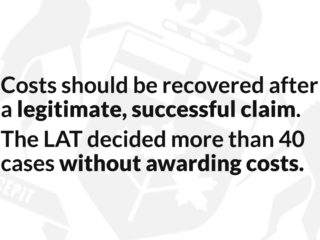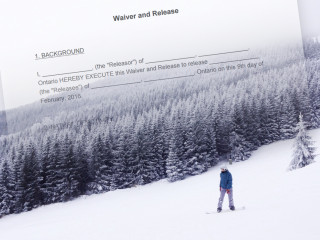The Court of Appeal of Ontario reviewed the doctrines of waiver and promissory estoppel in the context of an insurer’s right to deny coverage following the discovery that their insured had been consuming alcohol prior to a motor vehicle accident.
In 2006, three motorcyclists were riding their motorcycles when the rider in the front veered onto the wrong side of the road and collided with an automobile. The front motorcyclist, Devecseri, was killed. The driver of the automobile sustained injuries and commenced an action against the motorcyclists in 2008.
Devecseri was insured by RSA under a standard motor vehicle policy with a $1 million limit. In 2009, three years post collision, a defendant motorcyclist testified that Devecseri had consumed alcohol shortly before the motor vehicle accident. As a result, RSA took an off-coverage position as a blood alcohol level above zero was contrary to Devecseri’s policy.
There were two trials stemming from this motor vehicle accident. At the first trial in 2012, a jury awarded 1,800,000 in total damages to the Plaintiff apportioned 90/10 between Devecseri and another Defendant motorcyclist, Bradfield. The judgment also indemnified Bradfield against Devecseri’s estate. The second trial, which is the subject of this appeal, was brought under s. 258 of the Insurance Act, R.SO. 1990, c.I.8. in which Bradfield sought a declaration of entitlement to recover judgement against RSA, Devecseri’s insurer.
The trial judge was asked to determine whether RSA was entitled to take an off-coverage position and reduce the policy limit from $1 million to $200,000 as a result of the policy breach. The trial judge held that RSA waived its right to take an off-coverage position because it had done so too late. The trial judge found that RSA could have ordered a copy of the coroner’s report during its investigation which would have revealed that Devecseri had alcohol in her system. Although RSA had contemplated ordering the coroner’s report during their initial investigation, it never followed through.
On appeal, the issues were whether RSA waived its right to deny coverage and whether the issue of estoppel was moot (as determined by the trial judge).
The Court of Appeal reviewed the doctrine of waiver as outlined by the Supreme Court of Canada in Saskatchewan River Bungalows Ltd. v. Maritime Life Assurance Co. [1994] 2 SCR 490, which states that waiver will be found where”
“the party waiving had (1) full knowledge of the deficiency that might be relied upon; and (2) the unequivocal and conscious intention to relinquish the right to rely on the contract or obligation. The creation of such a stringent test reflects the fact that no consideration moves from the party in whose favour a waiver operates. An overly broad interpretation of waiver would undermine the requirement of contractual consideration.”
The Court of Appeal confirmed that knowledge can be inferred from conduct, but “that conduct must give evidence of an unequivocal intention to abandon rights known to the party waiving the right” (Canadian Federation of Student/Federation Canadienne des etudiant(e)s v. Cape Breton University Students’ Union, 2015 ONSC 4093).
The Court of Appeal found that RSA had no actual knowledge of the policy breach until after the examinations for discovery, nor could knowledge of a policy breach be imputed as RSA did not have all the material facts. The Court rejected Bradfield’s assertion that RSA knew of the breach and deliberately did not take possession of the information (by ordering the coroners report). Lastly the Court found that there was no written waiver of the breach by RSA, which is required by Section 131(1) of the Insurance Act. Therefore, the trial judge had erred in concluding that RSA had waived its right to refuse coverage.
On the issue of estoppel the Court of Appeal outlined the requirements as follows:
- As in the case of waiver, the insurer must have knowledge of the facts that support a lack of coverage; and
- Unlike waiver, there must be “a course of conduct by the insurer upon which the insured relied to its detriment.” (Rosenblood Estate v. Law Society of Upper Canada (1989), 37 C.C.L.I. 142 (Ont. H.C) aff’d 16 C.C.L.I. (2d) 226 (Ont. C.A.)
The Court of Appeal again found that the trial judge had erred in determining that that issue of estoppel was moot. The Court of Appeal found no evidence of detrimental reliance as there was no difference in the defence of the action whether RSA had added itself as a statutory third party or was a defendant. The Court of Appeal found that any presumption of prejudice had been rebutted.
In summary, the Court of Appeal granted the appeal and found that RSA did not waive its right to rely on the policy breach nor was it estopped from relying on the breach.















